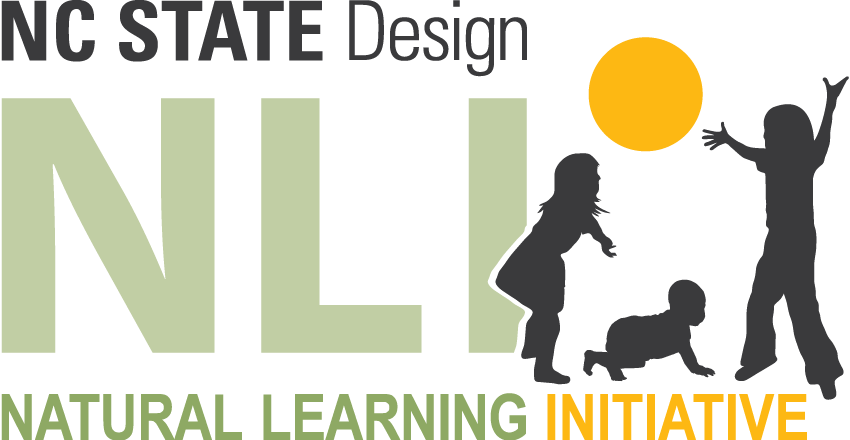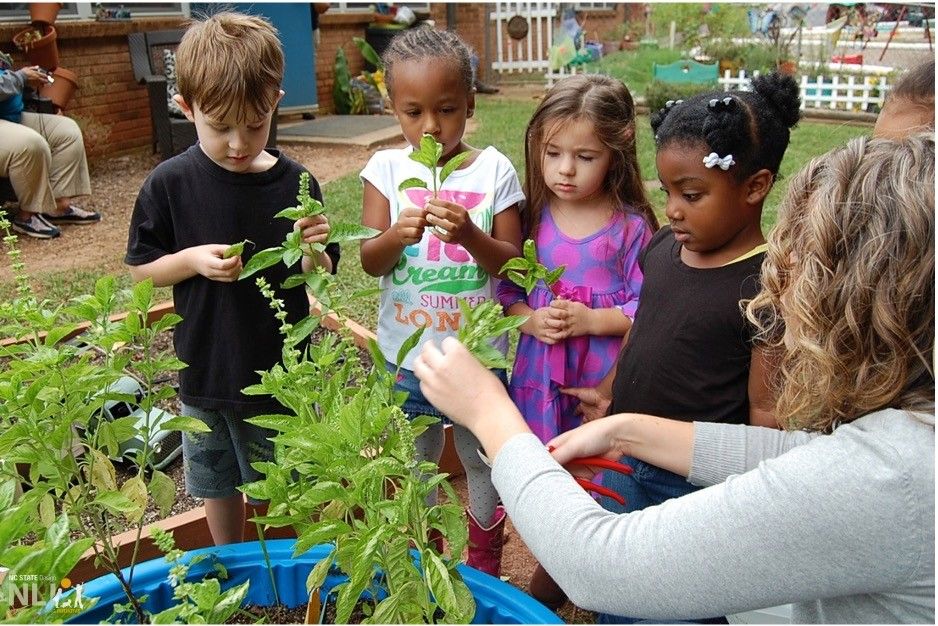The Oakland Declaration on the Vital Role of Nature-Based Learning in Promoting the Wellbeing of People and the Planet
Backstory. The Nature-Based Learning Network (NBLN) gathering at the Children & Nature Network International Leadership Summit, Oakland, California, May 2018, provided an opportunity to capture the advocacy power of this unique gathering of diverse disciplines and professions, to create an international declaration on nature-based learning. A draft was adopted by NBLN Summit participants. Many weeks of fine-tuning by the drafting team followed. The Natural Learning Initiative (NLI) produced the graphic rendition.
We, participants at the Children and Nature Network International Leadership Summit that met in Oakland California, and other signatories, proclaim the vital role of nature-based learning in creating a more sustainable future for all. We represent policymakers, public servants, grassroots leaders, education and health care professionals, scientists, researchers, conservationists, urban planners, environmental designers, facility managers, funders of educational and environmental initiatives, and others who came together with the aim of connecting all children, families, and communities with nature.
With the belief that helping people understand, value, protect, and care for nature will simultaneously serve human wellbeing, and protect and restore the natural world, we issue this Declaration to:
- Identify the characteristics of nature-based learning;
- Affirm its relevance to basic human needs and the health of the planet; and
- Call for action to weave access to nature into the lives of all people.
What is Nature-Based Learning?
Nature-based learning occurs in natural settings and where elements of nature have been integrated into built environments. It often involves learning about nature but also extends to engagement in any interest or skill in natural surroundings. It includes experiences at home, in the community, and at school, from free play and exploration to programmed activities. Nature-based learning applies to all ages across the many environments of people’s lives.
Why is Nature-Based Learning Important?
- Human well-being depends on our collective care for planet Earth, our shared home in the universe.
- People thrive in environments where they can pursue healthy, happy lives with opportunities to fully realize their capabilities.
- A robust, growing body of evidence indicates that experience of nature, and opportunities to learn in and about nature, support multiple dimensions of human health and wellbeing as well as active care for the Earth. These relationships, long understood by indigenous cultures, are now the subject of active research.
In Promoting Nature-Based Learning, We Recognize:
- Birth through adolescence is a phase of human development when time in natural environments offers lifelong benefits to rapidly developing bodies, brains, and personalities;
- The demonstrated value of interaction with nature during the first years of life suggests the need for special attention in early childhood together with environmental education for teachers and parents;
- The quantity and quality of access to nature – during routines of everyday life, free play, and programmed activities in and out of school – significantly affect children’s development;
- All people have a right to opportunities to learn in, through, with, about, and for nature; therefore, initiatives to promote nature-based learning need to be equitable and inclusive;
- Disparities in access to nature and high-quality nature-based programs must be addressed;
- Societies are urbanizing and the majority of humanity, including children, now live in cities and towns.
With this Declaration, We Affirm
Agenda 2030 for Sustainable Development (2015), a plan of action to shift the world onto a sustainable path for people, planet, and prosperity, with 17 goals balancing economic, social, and environmental dimensions.
The Earth Charter (2000), an ethical framework for building a just, sustainable, and peaceful global society, which seeks to inspire a new sense of global interdependence and shared responsibility for the well-being of the whole human family, the greater community of life, and future generations.
The Rio Declaration on Environment and Development (1992), stating that human beings are entitled to a healthy and productive life in harmony with nature.
The Convention on the Rights of the Child (1989), stating in Article 29 that education should contribute to the development of a child’s personality, talents, and mental and physical abilities to their fullest potential, including the development of respect for the natural environment, and preparation for responsible life in a free society;
The Ottawa Charter for Health Promotion (1986), advocating for the creation of a supportive environment that ensures equal opportunities for all people to achieve their fullest health potential, and observing that this requires people’s reciprocal care for each other, their communities, and their natural environment;
The Tbilisi Declaration (1977), stating that environmental education serves all age groups both inside and outside formal school systems, with the aim of helping people acquire knowledge, values, attitudes, and practical skills to protect and improve the world’s environment, as well as to support the sound and balanced development of the world’s communities;
Call for Action:
We now, therefore, invite children, youth, adults, communities, governments, and institutions of education, culture, science, health, and civic life, and others, to come together to cultivate a world where all people have equitable opportunities to experience nature as a foundation for learning and wellbeing, and as an inspiration for the protection and regeneration of the biosphere on which all life depends. To achieve this future, we encourage creative collaborations and recognize that multiple potential pathways exist to support progress to this end.
Greetings from the drafting team:
Judy Braus, North American Association for Environmental Education
Louise Chawla, Program in Environmental Design, University of Colorado Boulder
John Falk, Institute for Learning Innovation
Robin Moore, Natural Learning Initiative, North Carolina State University
Dilafruz Williams, Leadership for Sustainability Education, Portland State University

